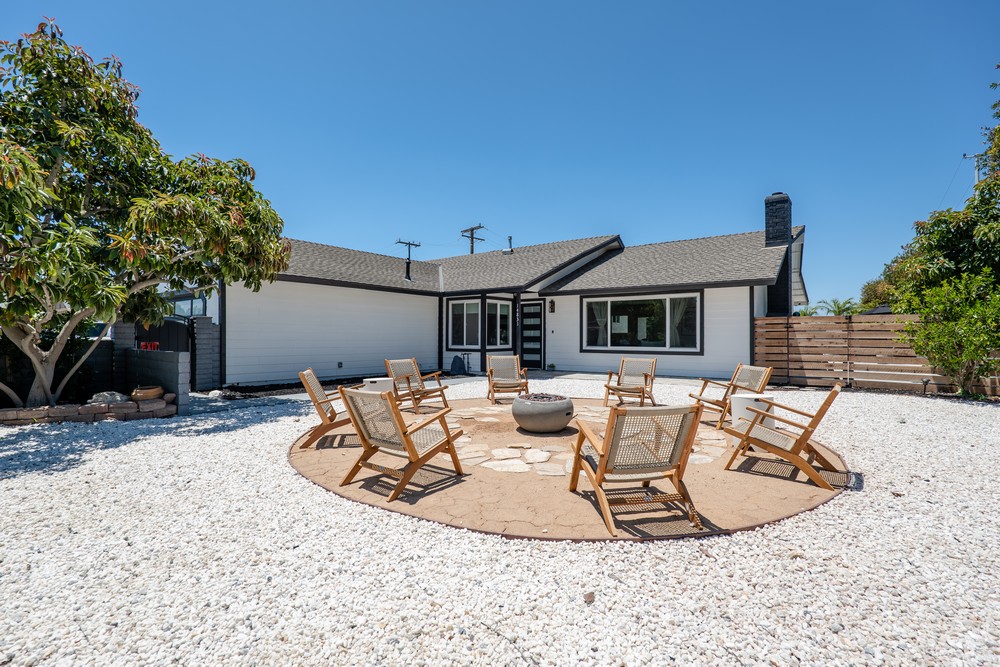Surf City Detox is your sanctuary for recovery, nestled in the serene landscapes of Huntington Beach, California. Our facility is dedicated to providing specialized detox and residential rehab treatment, designed to guide you on your journey toward lasting freedom from substance abuse. As the opioid crisis continues to impact lives across the nation, with California witnessing a significant rise in substance use disorders, the importance of effective, supportive rehabilitation has never been more crucial.

In California alone, thousands of individuals struggle with addiction, highlighting a growing need for comprehensive treatment solutions. At Surf City Detox, we understand that the path to recovery is deeply personal and requires a nurturing environment coupled with evidence-based therapies. As a trusted detoxification center in Huntington Beach, CA, we provide a safe and supportive setting where individuals can begin their journey to sobriety. Our team of compassionate professionals is committed to offering personalized care to meet the unique needs of each individual, ensuring a holistic approach to healing.
At its essence, residential rehab is a program designed to provide intensive, structured treatment to individuals dealing with substance abuse and related issues. Patients remain in the facility for a set duration, typically a few weeks to several months, depending on individual needs. The goal is to remove patients from triggers and distractions of daily life so they can focus entirely on their recovery.
The Core Components of Residential Rehab
- Individual Therapy: One-on-one sessions with trained counselors are crucial for addressing personal challenges and developing coping strategies.
- Group Therapy: Sharing experiences with peers fosters connection and support, allowing participants to learn from one another.
- Medical Support: On-site medical personnel provide essential care, including medication management and interventions for co-occurring disorders.
- Family Involvement: Engaging family members helps to rebuild relationships and create a support network for the individual.
- Aftercare Planning: Planning for life after rehab is vital to maintaining recovery progress and preventing relapse.
In addition to these core components, many residential rehab facilities also offer various complementary therapies, such as art therapy, music therapy, and yoga. These alternative therapies can enhance the healing process by allowing individuals to express themselves creatively and find new ways to cope with their emotions.
The Role of Residential Rehab in Recovery
The Therapeutic Approach of Residential Rehab
Therapy is at the core of residential rehab. Various therapeutic approaches may be utilized, including cognitive behavioral therapy (CBT), dialectical behavior therapy (DBT), and motivational interviewing, among others. Each method focuses on understanding and altering thought patterns and behaviors contributing to addiction. Additionally, group therapy sessions foster a sense of community among residents, allowing them to share their experiences and support one another in a safe and understanding environment.The Importance of a Structured Environment
The structured environment of residential rehab is crucial for recovery. This environment helps to minimize daily stresses and distractions that might hinder progress. A routine involving scheduled meals, therapy sessions, and recreational activities ensures that patients remain engaged and focused on their recovery goals. Furthermore, this structure often includes educational workshops that equip residents with essential life skills, such as stress management, communication techniques, and coping strategies, which are vital for maintaining sobriety.
The Benefits of Our Residential Rehab
Physical Health Improvements
One of the most significant benefits of residential rehab is the opportunity for physical healing. Substance abuse often results in various health issues, and a structured program can help individuals begin to restore their physical well-being. In residential rehab, patients receive nutritious meals, exercise opportunities, and medical care that addresses withdrawal symptoms and co-occurring health problems. Through these measures, they can begin to regain their physical strength and overall health.Mental Health Support
Mental health support is another key benefit of residential rehab. Many individuals who struggle with addiction also deal with underlying mental health issues such as anxiety, depression, or trauma. Addressing these issues in a safe environment allows individuals to heal on multiple fronts. Therapeutic interventions and support from counselors and peers help individuals develop coping skills that can significantly enhance their mental resilience and emotional stability.Social Skills Development
In residential treatment, patients often participate in group activities and discussions that promote the development of social skills. Many individuals struggling with addiction experience feelings of isolation. These group settings provide a platform to connect with others facing similar challenges. Learning to communicate effectively, work in a group, and build supportive relationships are essential skills that aid in recovery. Additionally, many programs emphasize the importance of family involvement, offering family sessions that help rebuild trust and improve communication.Outpatient Treatment vs. Residential Treatment
In contrast, residential treatment immerses individuals in a supportive environment with fewer distractions, making it a more intensive and focused approach. For many, this level of commitment is crucial for successful recovery.

Learn More About Our Residential Treatment! Contact Us Today!
Reach out to Surf City Detox today, and let us help you pave the way to a healthier, addiction-free future. Your journey toward healing and wellness begins here, and we are honored to walk alongside you in this significant chapter of your life.
Surf City Detox Accepts Insurance
We accept many insurance plans to help cover the cost of addiction treatment. Contact your provider to get more information or call our office to reach an intake specialist.


















